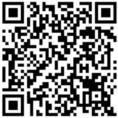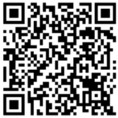Undergraduate Program for 6-year Specialty of Clinical Medicine(in English Medium)for International Students in North Sichuan Medical College
I. General Educational Objectives
To cultivate medical talents with solid basic medical knowledge, preliminary clinical ability and standardized operation skills, good professional quality, lifelong learning ability, cross-cultural communication ability and global competence.
II. Professional Educational Objectives and Requirements
Students of this specialty should master basic theory, basic knowledge and basic skills of medicine needed for medical practice and possess good morals and job attitude so as to lay a firm foundation for the continued education after graduation.
The basic requirements that the graduates of this specialty should meet includeobjectives in ideology and moral, objectives in knowledge, and objectives in skills.
Objectives in Ideology and Moral
1. Conform to laws and regulations, have a right attitude to life, values and honor, be willing to devote oneself to the development of medicine and public health.
2. Cherish life, care for patients, possess humanitarian spirit; take prevention and treatment of diseases as lifelong responsibility; take offering hospice care as moral responsibility; take safeguarding public health benefits as professional responsibilities.
3. Cultivate the concept of lifelong learning, realizing the importance of continuous self-improvement, and constantly strive for excellence.
4. Have a sense of communication with patients and their families in order to have their full participation in and cooperation with the treatment plan.
5. Pay more attention to medical ethics during medical practice, respect patients’ privacy and personality,understand their cultural background and cultural value.
6. To be honest when having medical problems which are out of one’s ability and take the initiative to seek help from other physicians.
7. Pay due respect for colleagues and other health care professionals and have group spirit and teamwork in health services.
8. Practice medicine in conformity with the law and protect the right and interests of patients and medical practitioners legally.
9. In the application of various possible technologies to the pursuit of accurate diagnosis or changing the course of a disease, take into account the interests of patients and their families, and pay attention to bringing out the maximum effectiveness of available health resources.
10. To have a scientific, innovative and analytically critical spirit.
11. To uphold medical ethics
Objectives in Knowledge
1.To master basic Chinese knowledge and understand the general situation of China.
2. To master the basic knowledge and scientific methods of life science, behavioral science and social science related to medicine, and being able to apply them to guide future study and medical practice.
3. To know the normal structure and function of the human body, the normal mental state at different stages of life.
4. To understand the causes of a variety of common diseases and frequently occurring diseases, the influences of environmental, social and psychological factors on the formation and development of diseases, the importance of the prevention of diseases.
5. To understand the pathogenesis, clinical manifestation, diagnosis, prevention and treatment of common diseases and frequently occurring diseases at different stages of life.
6. To have the basic pharmacological knowledge and principles of clinical drug use.
7. To master the principles of normal pregnancy and childbirth, common emergency, prenatal and postnatal care, and the medical knowledge of family planning.
8. To master the basic knowledge of general medical science, the principles of health education, disease prevention and screening, the relevant knowledge of alleviating diseases and disability, rehabilitation and hospice care.
9. To master the knowledge and methods of clinical epidemiology and understand the important role of scientific experiments in medical research.
10. To understand the basic rules of the occurrence, development and spread of infectious diseases and the principles of prevention and treatment of common infectious diseases.
11. To understand the basic characteristics and the basic principles of diagnosis and treatment of Chinese traditional medicine (National Medicine).
Objectives in Skills
1. To have the ability of comprehensive, systematic and correct collection of medical history.
2. To have the ability of carrying out systematic and standard physical and mental examination and the ability of writing medical records.
3. To have good ability of clinical thinking and expression.
4. To have the ability of diagnosing and treating common and frequently occurring diseases in internal medicine, surgical, gynecologic and pediatric departments.
5. To have the ability of diagnosis, first aid and treatment in general emergency.
6. Be able to choose the appropriate clinical technology, the most suitable, the most economical way to diagnose and treat diseases according to the specific situation.
7. To have the basic ability of engaging in community health services.
8. To have the ability to communicate effectively with patients and their families.
9. To have the ability to communicate with doctors, nurses and other health professionals.
10. To be able to study medical problems and acquire new knowledge and relevant information related to clinical practice independently by using books and materials and modern information technology. Be able to read Chinese medical materials and journals.
11. To be able to educate patients and the public about healthy life style and disease prevention.
12. To have the ability of independent learning and lifelong learning.
III.Schoolsystem and degree
1. Basic system (duration) is 6 years, plus flexible system, maximal duration is 8 years.Force majeure is excluded.
2.Degree: Those who meet the degree requirements of the Ministry of Education in China and the relevant provisions of NSMC and are approved by the degree assessment committee can be awarded a bachelor's degree in medicine.
IV.Major Disciplines and Core Courses in Specialty
1.Major Disciplines:Preclinical medicine, Clinical medicine
2.Core Courses in Specialty: HumanAnatomy, Histology and Embryology, Pathology, Biochemistry, Physiology, Medical Immunology, Medical Microbiology & Parasitology , Pharmacology, Medical Diagnostics, Internal Medicine, Surgery, Gynecology and Obstetrics, Pediatrics.
V.Main PracticalTeachingand Training (Including experiments)
Preclinical and clinical experiments, hospital visits and clinical Internship.
VI. Performance Assessment, Graduation Requirements
1.Performance appraisal: All subjects taught need assessment, specified by the relevant provisions of the “Rules of Study Management for International Students of North Sichuan Medical College"and "North Sichuan Medical College International students Internship Handbook".
2.Chinese level: The Chinese ability must reach HSK level 4 before clinical internship.
3.Graduation requirements: Undergraduate students of clinical medicine MBBS major are allowed to graduate if they pass all the teaching contents specified in this training program,complete the minimum credits specified in the teaching plan and pass the graduation examination. The minimum credits are284.5credits, including279.5in class credits (including222.5for compulsory courses, 54for centralized practical teaching links, and at least 3 for optional courses) and 5 credits of the second classroom. The graduation examination mode includes comprehensive theory examination and clinical skill examination.
VII.Notes
1.This Undergraduate Program is in accordance with the《Administrative Measures of the University for the Recruitment and Training of International Students》(Order No. 42 of the Ministry of Education, the Ministry of Foreign Affairs and the Ministry of Public Security on March 20, 2017), the《Quality Standards of Higher Education for Foreign Students in China (Trial)》(Jiao Wai [2018] No. 50), the《Medical Education Standards for Undergraduate Students in China - Clinical Medicine》(2008, 2016), the《National Standards for the Teaching Quality of Undergraduate Majors in Ordinary Colleges and Universities》in 2018,the《Quality Control Standards for Undergraduate Education (English Teaching) of Clinical Medicine for International Students in China》(April 2020), and other documents,based on the education standards of Chinese students, the requirements of《Syllabus MBBS at the AIIMS》(MBBS syllabus) issued by the All India Institute of Medical Sciences in India, the source country of students, and the《Talent training program of North Sichuan Medical College》(2020 version).
2. In the curriculum reform, in the morphology courses, theory teaching should be reduced while experiment should be increased. Function experimentation teaching should cut verification experiments and increase comprehensive experiments, improving the practical ability. Clinical courses should reduce theory teaching and increase bedside teaching.
3. Teaching consists of curricular teaching and extracurricular teaching. Curricular teaching includes large classes, small class, case teaching, discussion, experiment teaching, hospital visits, internships, etc. Extracurricular teaching refers to the students self-learning, social practice and other forms of learning required by the syllabus (not including the student review).
4. Elective courses are to strengthen students' individuality, broaden their knowledge. Students can choose courses according to their interests, hobbies, learning process and complete the corresponding courses required.





